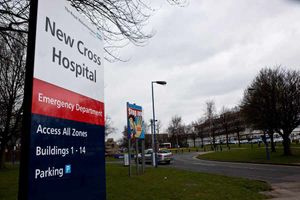Cockroaches and rats found at Wolverhampton NHS sites
An NHS trust bust its pest control budget by nearly 60 per cent as it battled to rid hospital sites of cockroaches, rats and pigeons.

Bosses at the Royal Wolverhampton NHS Trust have spent £93,617 on pest control measures over the past four years, exceeding the allotted budget of £59,347.
A Freedom of Information request asking for details of pest control call outs between 2013 and 2017 revealed the measures taken to tackle the problem, at sites including New Cross Hospital.
The data shows there were 18 call outs over the period that were classed as ‘non-routine’.
They include rat activity reported in a kidney ward in December 2013, where a dead squirrel was found in a loft area.
In February 2014 cockroaches were reported in an on site pharmacy and were sprayed and treated.
There was an outbreak of ‘biting insects’ at New Cross’s Hollybush House in July 2014, which led to traps being laid on the site.
In the same month cockroaches were found in the eye infirmary basement and a wasps nest was identified in the brickwork of The Chestnuts office building.
In April 2015 fruit flies were found in the kitchen at the Acute Medical Unit, while in November of that year silverfish were exterminated at the kitchen in Hollybush House.
February last year saw wards’ A7 and A8 treated after a cockroach infestation was found in the kitchen area.
A German cockroach infestation was spotted in the same area at the start of June 2016, and despite insecticide treatment further activity was seen at the same spot later in the month.
The information notes that the pest control company said that the infestation ‘was not due to catering hygiene levels’, and that it was likely to have been ‘introduced to the area’.
Cockroaches were also reported in a male changing room at the McHale Building at New Cross.
Ian Jenkins of the Wolverhampton Lib Dems, said: “Such findings are truly revolting.
“How can patients feel safe amid fleas, rats and even cockroaches being found in our hospitals. These findings reveal what happens when money is taken away from where patients expect to see it spent. Wards are where we should see a nurse or a doctor and not a rat trap. It is horrifying that our hospital buildings are in such a ramshackle state.”
Royal Wolverhampton NHS Trust spokesman Richard Radcliffe, said: "We always strive to provide high quality, safe care for our patients. We take pest control very seriously and all our sites are routinely maintained and kept as pest-free as possible."




